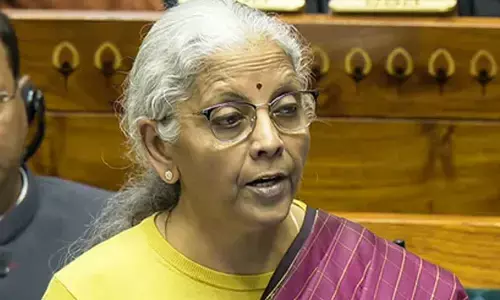Telangana Pollution Control Board goes solar

Ideally, the Telangana Pollution Control Board (TPCB) should have been the first to adapt solar powered energy, ‘better late than never’ seems to have dawned on the authorities. In the next two months, PCB would be going completely solar. A 100 KW solar power on the roof-top under the net metering programme is underway with Projects & Equipment Corporation of India Ltd executing the project.
The PCB has decided to minimise its electricity bills by going the eco friendly way
Ideally, the Telangana Pollution Control Board (TPCB) should have been the first to adapt solar powered energy, ‘better late than never’ seems to have dawned on the authorities. In the next two months, PCB would be going completely solar. A 100 KW solar power on the roof-top under the net metering programme is underway with Projects & Equipment Corporation of India Ltd executing the project.
V Anil Kumar, member secretary, Telangana Pollution Control Board (TPCB), says, “Presently the power bills per month comes close to Rs 2 lakh. As per calculations we would be able to get the Return on Investment in six years.” At present both TPCB as well as APPCB are in the same building.

The total cost of the project is Rs 79,10,000 and PCB has paid Rs 55,10,000 to Telangana New & Renewable Energy Development Corporation (TNREDC), the nodal agency in the state. PCB is expecting anywhere between Rs 15-24 lakhs as subsidy from the Ministry of New & Renewable Energy, Government of India.
A senior executive engineer of PCB said that dual meter would be in use. During Sundays and holidays the harnessed energy would land in the grid which would effectively bring down consumption. The electricity generated from solar power would be calculated and that much would be reduced from the actual electricity bill.
Once the PCB goes solar, it would be joining three other hospitals-- Gandhi, Osmania and Fever hospital-- that are already equipped with 500 KW, 40 KW and 100 KW respectively. The Salar Jung Museum too decided to install a 500 KW solar power plant which it plans to start operations in the next three months. By going for solar power, the museum aims to save Rs 7 lakh per month.
By:T P Venu














